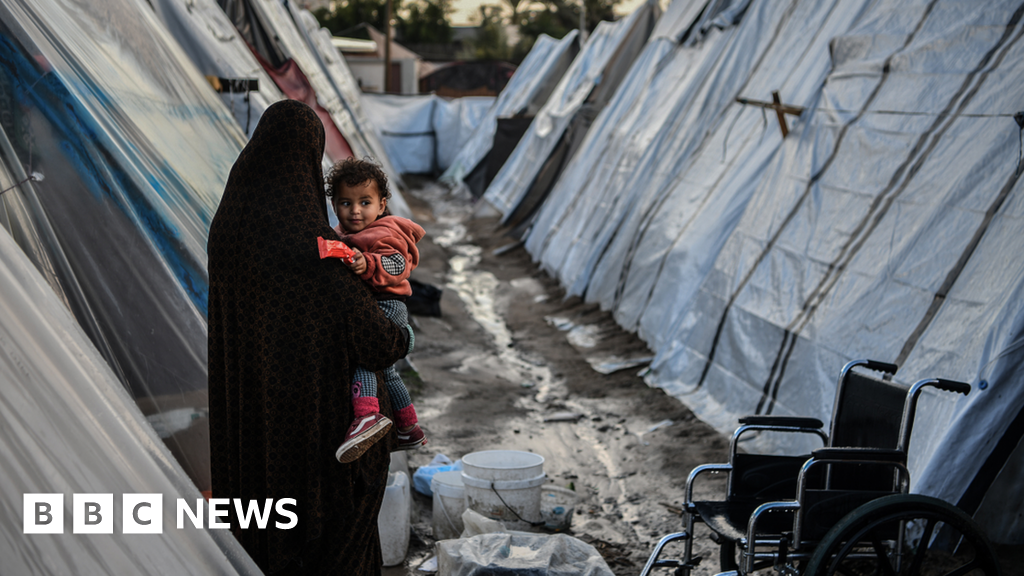Talks to agree a ceasefire between Israel and Hamas in Gaza were “not very promising” in recent days, mediator Qatar has said.
Prime Minister Mohammed bin Abdulrahman Al Thani said he remained optimistic, but added “time is not in our favour”.
It comes as Israel’s prime minister said he would press ahead with plans for a Rafah ground invasion, despite growing international pressure.
Hamas has blamed Israel for a lack of progress in achieving a ceasefire deal.
Talks have been taking place in Cairo as senior officials from the US, Israel, Egypt and Qatar meet to try to broker a pause in fighting.
“The pattern in the last few days [is] not really very promising but, as I always repeat, we will always remain optimistic and will always remain pushing,” said Sheik Mohammed, speaking at a meeting of world leaders at the Munich Security Conference.
“I believe in this agreement we are talking at a bigger scale and we still see some difficulties on the humanitarian part of these negotiations,” he added.
But he said a truce should not be dependent on a deal to release the hostages held by Hamas.
“This is the dilemma that we’ve been in and unfortunately that’s been misused by a lot of countries – that in order to get a ceasefire, it’s conditional to have the hostage deal,” he said.
Israeli Prime Minister Benjamin Netanyahu said he sent negotiators following a request from US President Joe Biden, but added they did not return for further discussions because Hamas’s demands were “delusional”.
Israel launched its military offensive after Hamas-led gunmen killed at least 1,200 people and seized 253 hostages in a surprise attack on its territory on 7 October.
The Hamas-run health ministry says more than 28,800 people, mainly women and children – have been killed in Israel’s campaign.
Speaking at a press conference in Tel Aviv on Saturday, Mr Netanyahu reiterated his aims of destroying Hamas and said his forces would fight until Israel achieved “absolute victory”.
He said those urging against military action in Rafah, the southern-most Gazan city where some 1.5 million people have fled, were effectively telling the country to “lose the war”, adding that his troops would enter even if a hostage deal was reached.
In the earlier days of the war, Israel had instructed Palestinians to seek refuge in Rafah as the Israeli military moved against the northern cities.
Israeli authorities this week said they wanted civilians to relocate to what they call a “humanitarian zone” – a thin strip of mainly agricultural land along the Mediterranean coast known as al-Mawasi.
President Biden has urged Israel not to launch an offensive in Rafah without a plan to keep civilians safe.
Mr Netanyahu is also facing pressure domestically to bring home the hostages who remain in Gaza.
Thousands of protesters gathered in Tel Aviv on Saturday calling for early elections, which are not scheduled until 2026. Israel’s prime minister dismissed similar calls from within his own ruling Likud party for an election immediately after the conflict with Gaza had ended, saying it would “immediately divide us”.
Meanwhile, Hamas has blamed Israel for a lack of progress in achieving a ceasefire deal and threatened to suspend its involvement unless relief supplies are brought into the north of Gaza. Aid agencies say they are increasingly concerned about the lack of food, water and medicine in the territory.

David Turner is a globe-trotting journalist who brings a global perspective to our readers. With a commitment to shedding light on international events, he explores complex geopolitical issues, offering a nuanced view of the world’s most pressing challenges.







